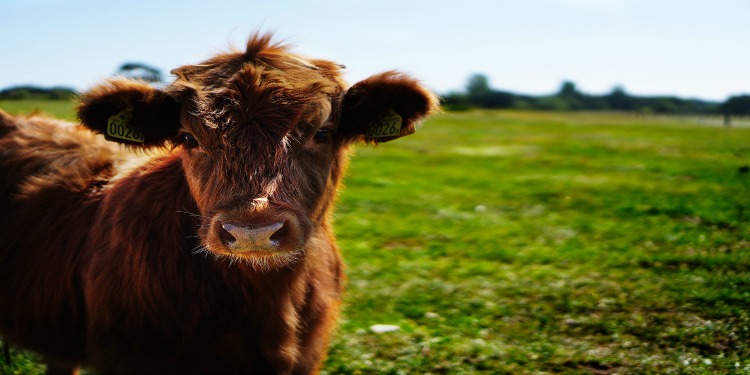The Red Heifer Paradox
The Fellowship | June 27, 2017

“A man who is clean shall gather up the ashes of the heifer and put them in a ceremonially clean place outside the camp. They are to be kept by the Israelite community for use in the water of cleansing; it is for purification from sin. The man who gathers up the ashes of the heifer must also wash his clothes, and he too will be unclean till evening. This will be a lasting ordinance both for the Israelites and for the foreigners residing among them.” — Numbers 19:9–10
The Torah portion for this week is Chukat, which means “requirement” or “law,” from Numbers 19:1–22:1, and the Haftorah is from Judges 11:1–33.
When we were young, we used to tell the following riddle: “What’s black and white and red all over?” While the person we posed the challenge to was trying to figure out how something could be white, black, and red at the same time, we would blurt out the answer: “A newspaper! It’s black and white and read all over!”
This week’s reading provides us with another paradox: What’s completely red, makes the pure impure, and the impure, pure? The answer: The red heifer.
Here’s how it works: A red heifer was to be slaughtered and burned. Its ashes would be used to purify sinners. However, paradoxically, any priest who came in contact with the ashes would become impure and would need to purify himself afterward.
The Jewish sages are perplexed. How was it that the very same thing (the heifer’s ashes) that contaminated one person purified another? How could something that brought a person down spiritually, also serve to raise a person up?
When it comes to God’s laws, there isn’t anything to explain. What God says is true is reality, whether we understand it or not. But on another level, there is a powerful message behind this seeming paradox, one that is relevant to us today.
No human being is perfect. Everyone has his or her set of virtues and vices. We spend our lifetime (hopefully) trying to overcome our faults and become better people. Yet, we fail over and over again. It’s extremely difficult to overcome our shortcomings, but the paradox of the red heifer gives us a tool that helps us fix our brokenness and right our wrongs.
Just as the very ashes that caused impurity could bring about purity, so too, the very things that bring us down, can also lift us up.
Imagine someone is a compulsive gambler. It’s hard to overcome any addiction, and this person tries unsuccessfully to break out of the gambling cycle. Then one day, he hits rock bottom. He is deeply in debt and his wife leaves him. The man feels incredible pain and regret. He feels it so intensely that he resolves, like never before, to break his habit once and for all. Every time he is tempted to revert to his old ways, he thinks of the pain he once knew. He beats his habit, rebuilds his life, and finds himself stronger than ever before. What brought him down leads to his pathway up.
Instead of being upset at our inability to change, let’s use our frustration as the reason to change. The very shovel that dug our ditch can become the very tool that helps us dig our way out.
